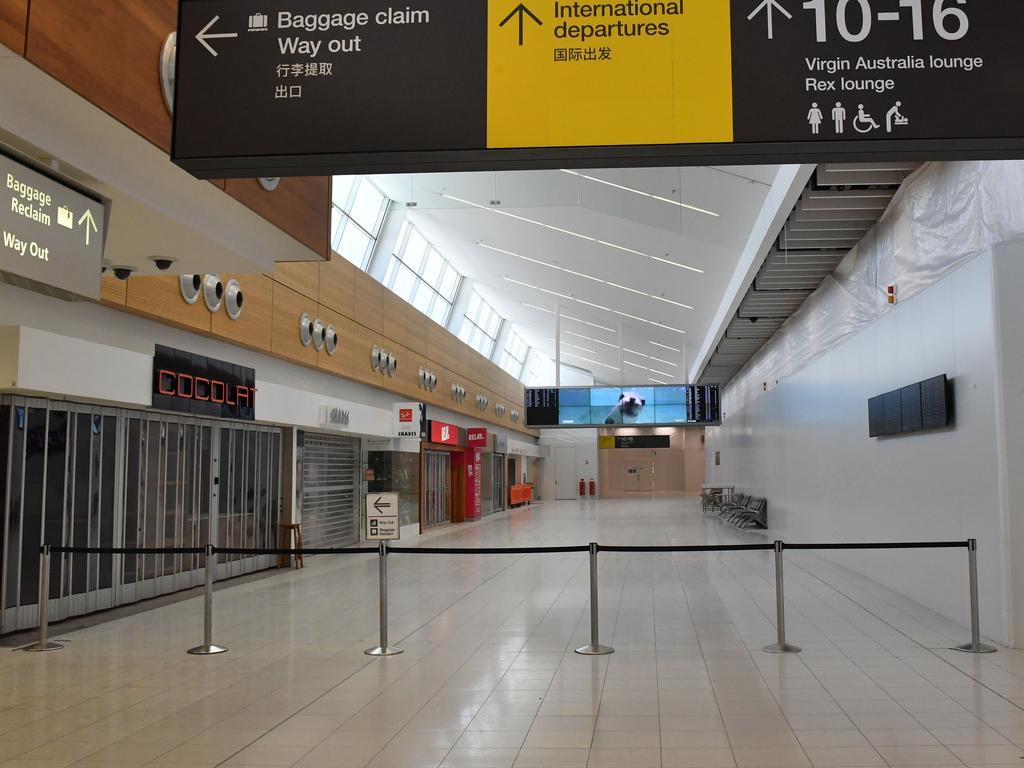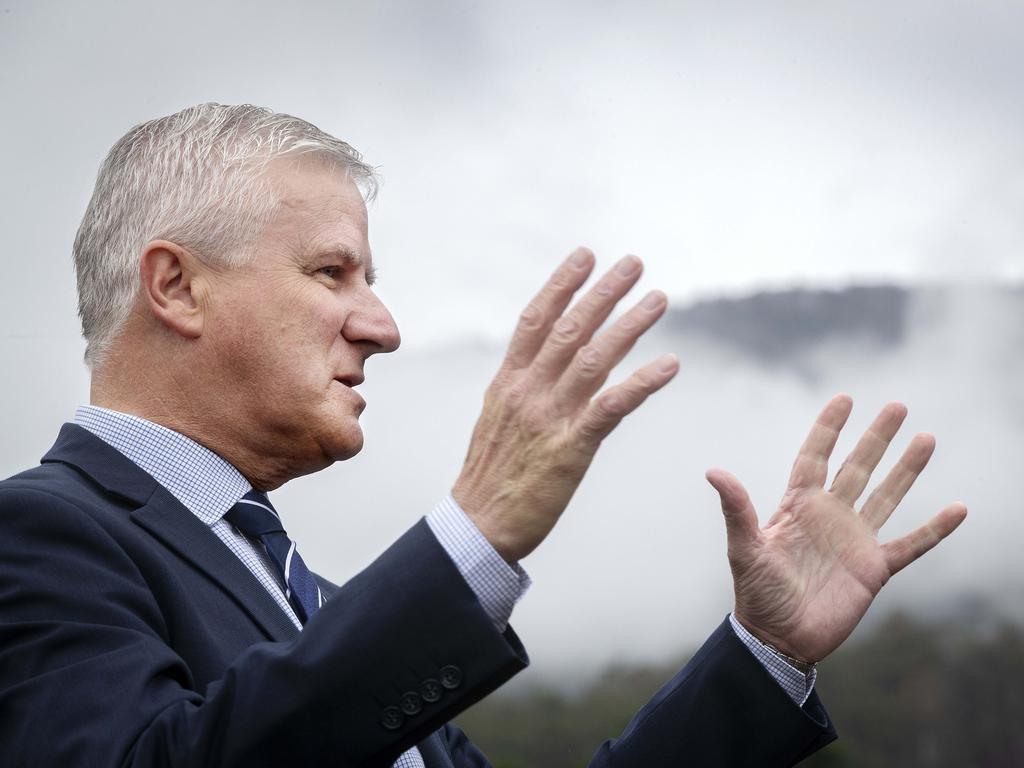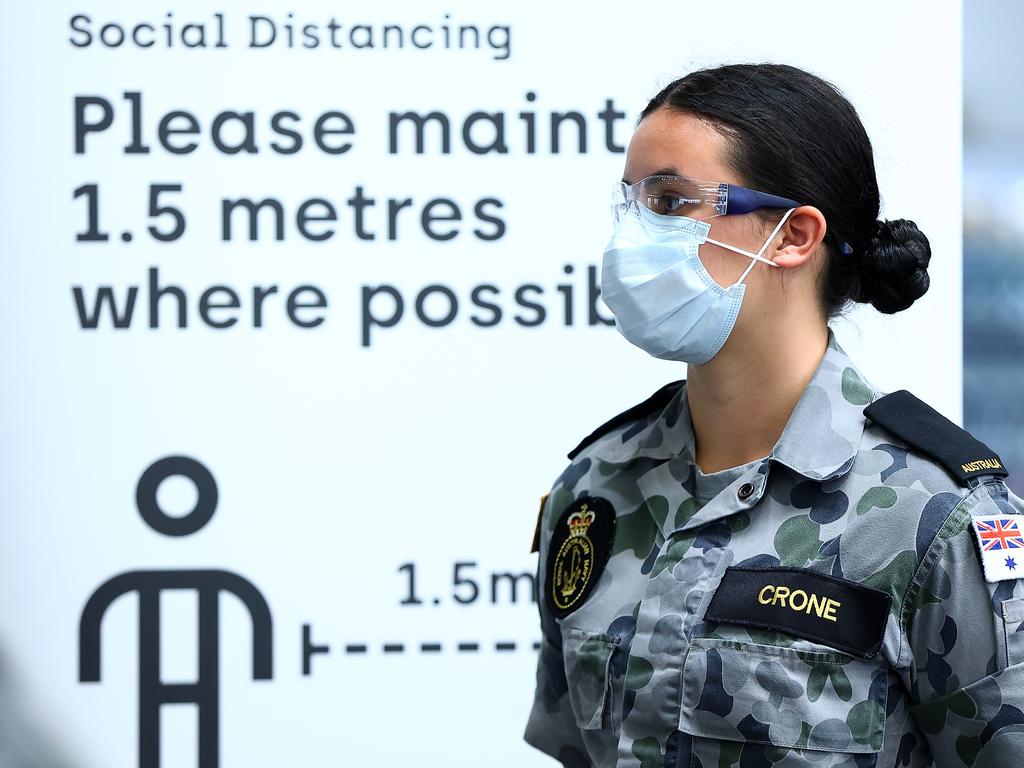‘Catastrophic’: Airports beg for help after COVID-19 damage
Australia’s airports are begging for life support to be extended after a ‘catastrophic’ hit from COVID-19, but the government wants them to stand on their own.
Australia’s airports are begging the government to save them from the “catastrophic” impact of COVID-19, as the pandemic inflicts $320 million monthly blows to their finances.
Australian Airports Association chief executive James Goodwin will front a senate committee into the aviation industry on Friday, calling for government support to be extended for at least six months.
Mr Goodwin accused the government of yanking away a safety net for airports while relying on them “to shoulder the burden of operating as an essential service” throughout the pandemic.
He said the sector was still reeling from the “catastrophic” impact of the pandemic.
RELATED: National cabinet: Masks mandatory for airline passengers, pre-flight testing adopted

“Our sector was hit first, hit hard and will most certainly be one of the last to recover from the pandemic,” he said.
“Unfortunately, the Australian government’s main support to the aviation industry is being phased out at a time when it remains urgently needed.”
He claimed airports were losing $320 million a month during the pandemic, saying they had only managed to repatriate Australians and shift freight by “continuously drawing on reserves”.
But a spokesperson for Deputy Prime Minister Michael McCormack, also the Transport Minister, said the government had already provided more than $2.7bn in aviation programs in consultation with the industry.
One government relief package targeted at the aviation sector was in place until on December 31, while two others will taper off in March, along with the Jobkeeper supplement.
Mr McCormack’s spokesperson said the support had kept flights to roughly 120 locations across Australia in the air.

“(It) supported a larger route network than would be commercially viable and maximising opportunities for continued employment,” they said.
“The package has ensured many domestic airlines and airports remain operational and retain essential connectivity through the peak of the pandemic.”
International passenger arrivals are down 98 per cent since the pandemic began, and overseas travel remains unlikely until next year.
Mr McCormack has played down the chances of a resumption this year despite Qantas restarting sales of overseas flights from July 1.
And although domestic passenger numbers have climbed slightly, they were down 64 per cent compared to January last year, the AAA said.
But Mr McCormack’s spokesperson said the government wanted the aviation sector to stand on its own feet after months of support.

“The government is continuing to monitor the domestic and international situation, but ultimately the government wants to support aviation’s return to being a profitable, self-sustaining sector,” they said.
Recent COVID-19 flare ups showed how precarious the economic situation remained, Mr Goodwin said.
“Borders were slammed shut and thousands of Australians were forced to cancel their holiday flights and accommodation, putting the brakes on the sector’s recovery for several months, possibly years,” he said.
Regardless of the number of passengers, the day-to-day costs of running airports remained “largely the same”, he said.
That has been exacerbated by the government mandating new screening infrastructure, the cost of which was estimated by the AAA at $110 million.
“Airports should not be expected to outlay these significant costs when they have no way of receiving a return on investment,” Mr Goodwin said.
Airlines and aviation services companies have also called on the government to extend support, with the Australian Services Union saying on Thursday the need was urgent, with Virgin announcing another 350 job cuts in its head office.



